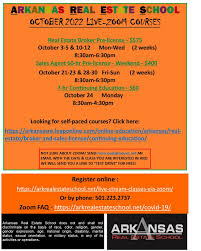
Real Estate Complaints
If you feel that you have been cheated by your real estate agent or broker, you may want to file a complaint. A process is available in your state to make complaints about brokers and agents. It is very easy to follow. This involves providing specific facts and evidence to the agency. They will then investigate.
You must first gather all of the documents that you think show evidence of the alleged wrongdoing and submit them to your state agency with a detailed explanation of how you believe the real estate agent or broker acted wrongfully. This could include the contract of sale, inspection reports, and any other documents that prove what you believe happened during the transaction.
Next, take down the details of all the events leading up to your complaint. This will help you remember the timeline and make sure everything is clear. It will also be helpful in the future if you need to provide evidence of the alleged wrongdoing later on.

Forms vary from state to state, but you should be able to find one online. The form will ask for your contact information and the address of the broker or real estate agent. It also requires you to provide details about the transaction. Some forms will require you to show proof of receipts that the broker or realtor provided for estimates or other services.
Your state has its own realty commission, which handles complaints concerning real estate licensees. The commission will investigate the complaint and decide what to do.
This investigation can take many months depending on the complexity and the number involved. The state will gather all documents necessary to support your claim against the broker or real estate agent during this period.
If you are a National Association of Realtors member, you must follow their Code of Ethics. If you are not a member, then your recourse is with the state real estate authority or the courts.

After you have collected the evidence, you can decide if it is worth filing a complaint. You will have to weigh the costs and benefits of pursuing this option with your own attorney. The most important thing to do is decide how serious you think the situation is, and then determine the best course for you.
It is also important to consider the statutes in your state. You have a five-year to four-year window to file a complaint. However, the statute of limitations in every state is different. This ensures that your case can be brought back if it has not been resolved.
Also, you might consider reaching out to your local board of realtors to inquire if they have an ethical committee. These committees, which are often made up of members your local association of real estate professionals, are tasked to investigate complaints against real agents in their areas. The board of realtors will then review the complaint and determine if it is in violation of their organization's Code of Ethics. If it is, the board of realtors will examine it and decide if they should issue a warning or suspend the license.
FAQ
What is a reverse loan?
A reverse mortgage allows you to borrow money from your house without having to sell any of the equity. It works by allowing you to draw down funds from your home equity while still living there. There are two types: government-insured and conventional. If you take out a conventional reverse mortgage, the principal amount borrowed must be repaid along with an origination cost. FHA insurance covers repayments.
What are the benefits to a fixed-rate mortgage
With a fixed-rate mortgage, you lock in the interest rate for the life of the loan. This ensures that you don't have to worry if interest rates rise. Fixed-rate loans offer lower payments due to the fact that they're locked for a fixed term.
What are the drawbacks of a fixed rate mortgage?
Fixed-rate loans tend to carry higher initial costs than adjustable-rate mortgages. You may also lose a lot if your house is sold before the term ends.
How can I find out if my house sells for a fair price?
If you have an asking price that's too low, it could be because your home isn't priced correctly. Your asking price should be well below the market value to ensure that there is enough interest in your property. Get our free Home Value Report and learn more about the market.
How much money do I need to save before buying a home?
It depends on the length of your stay. It is important to start saving as soon as you can if you intend to stay there for more than five years. But if you are planning to move after just two years, then you don't have to worry too much about it.
What are the top three factors in buying a home?
The three main factors in any home purchase are location, price, size. It refers specifically to where you wish to live. Price refers the amount that you are willing and able to pay for the property. Size is the amount of space you require.
How much money will I get for my home?
It all depends on several factors, including the condition of your home as well as how long it has been listed on the market. Zillow.com shows that the average home sells for $203,000 in the US. This
Statistics
- When it came to buying a home in 2015, experts predicted that mortgage rates would surpass five percent, yet interest rates remained below four percent. (fortunebuilders.com)
- This means that all of your housing-related expenses each month do not exceed 43% of your monthly income. (fortunebuilders.com)
- Based on your credit scores and other financial details, your lender offers you a 3.5% interest rate on loan. (investopedia.com)
- Private mortgage insurance may be required for conventional loans when the borrower puts less than 20% down.4 FHA loans are mortgage loans issued by private lenders and backed by the federal government. (investopedia.com)
- Some experts hypothesize that rates will hit five percent by the second half of 2018, but there has been no official confirmation one way or the other. (fortunebuilders.com)
External Links
How To
How to become a real estate broker
To become a real estate agent, the first step is to take an introductory class. Here you will learn everything about the industry.
Next, you will need to pass a qualifying exam which tests your knowledge about the subject. This requires you to study for at least two hours per day for a period of three months.
You are now ready to take your final exam. To become a realty agent, you must score at minimum 80%.
These exams are passed and you can now work as an agent in real estate.